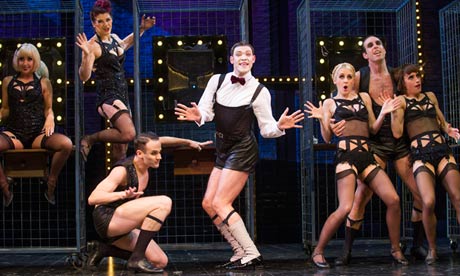Mark Rylance's Olivia in the all-male Twelfth Night now at the Apollo in London was a revelation. I never really understood Olivia. For me she was always one of Shakespeare's disappointing female characters. Not particularly witty or smart, she always seemed to be little more than necessary to the plot. The play was about Viola and Orsino with some hilarious, and very dark, subplot provided by Malvolio and Feste. In Rylance's version Olivia is the plot. This is a play about the nature of woman--and how her true self contrasts, conflicts, and is defined by how she is construed by society. In her guise as Cesaro, Viola makes some discoveries upon this theme but she is too young to know what lies ahead. Olivia, instead, through her bumbling vanity, her primness that belies a boundlessly erotic passion, her mourning for her brother which is in fact a displaced mourning for her lost youth, has much to tell us about the truths and vagaries of womanhood. Maria, Olivia's housekeeper, played excellently by Paul Chahidi, is a perfect complement to Olivia providing the servant's eye view into femaledom. I have seen this play performed perhaps five or six times and I have seen incredible Malvolios (including Derek Jacobi), astonishing Festes, wondrous Sir Toby Belches, but I have never seen such an Olivia. The men who played women in this Twelfth Night were in general more entertaining than the men who played men who were rather, including Stephen Fry, rather run of the mill. But it is rare to have every character in a Shakespeare play equaled by the actor no matter his or her sex.
Just such a rarity is being performed at the Donmar Warehouse in the all-female cast production of Julius Caesar. It is just plain astonishingly good in every way. I was skeptical about the play being set in a contemporary women's prison, a play within a play, but it works brilliantly, gets us to listen to the play's themes of power brokering, war, dictatorship, regime change in an altered and thus intensified manner. The set, the staging, the lighting, everything is exquisitely done but ultimately the production's true genius lies in the incredible performances of each and every actress which has everything to do with Phyllida Lloyd's outstanding direction. As Twelfth Night is a play fundamentally about femininity, Julius Caesar is a play fundamentally about masculinity--and how public constraints exaggerate, enhance, conflict with, and betray a man's true self. How better to understand this than to see the play performed by an all-female cast? And such a uniformly talented one. Our suspension of disbelief is established straight away allowing a viewer to contemplate in new ways Shakespeare's favorite idea: nothing is as it seems. Who knew that was still possible? Every individual performance is outrageously good but Jenny Jules as Cassius, Harriet Walter as Brutus, Frances Barber as Julius Caesar, and Cush Jumbo as Mark Antony have redefined their roles and as such are historic. The play is performed in just under two hours with no intermission. The time flew by and I didn't want it to end. Each speech, each line spoken, was clear and vital. I hung on every word. I have never witnessed such a profound female exploration of the masculine other. These actresses have given us an extraordinary, innovative, and revelatory excavation of humankind. I greatly look forward to a female Macbeth, Hamlet, Lear...





















